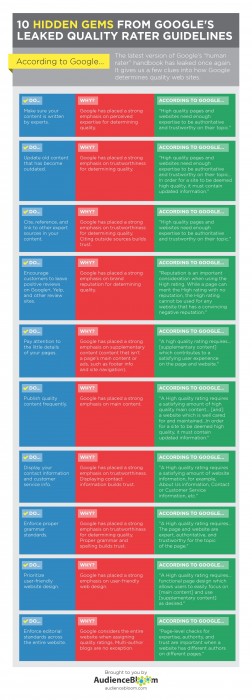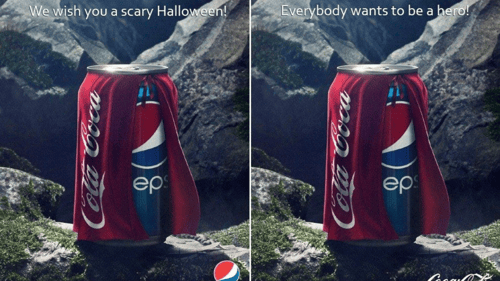Google EAT - an insight into the Google algorithm

Posted by 256
November 13th, 2014
Did you know that there's a human element to the Google algorithm? Yes, real humans!
Google has teams of people who do quality testing on websites. Their findings inform the tweaks to the algorithm. Human teams blind test 2 lists of websites – one delivered by the existing algorithm and another delivered by a tweaked version of the algorithm. The teams don’t know which list is which, so their ‘human’ rating of the results produced is taken as an indication of whether the tweak is producing better results or not.
'That’s all well and good', I hear you say, 'but what can we learn from this?'
Well, the rating manual used by these human raters has been leaked on a few occasions and gives us a pretty good insight into what Google is looking for in a website.
Google EAT
The acronym Google EAT – Expertise, Authority, Trustworthiness - summarises what they look for in high quality sites. As it happens, these are some of the key reasons why you should be attending to your Content Marketing. But there are some basic content marketing fixes you should also do a check on.
Here are some of the key learnings from the document.
Expertise
Try to have official indicators of your expertise displayed clearly on the site. Particularly if yours is a site that falls under YMYL (Your Money or Your Life). So, if you are a medical site, for instance, make sure to include the formal medical qualifications of the person writing or vetting the site. Equally, a finance site should have clear expressions of the qualifications of the contributors. In fact, if your site has anything to do with health or finance
However, Google acknowledges that life experience is also a valid qualification.
For example, internet forums, such as support forums for specific disease, can be an excellent resource for the ill as they provide input from other sufferers who can share their direct experience - someone sharing their story of living with arthritis. The contributors to these forums may not be qualified experts in the medical field, but their life and everyday experience with the disease make them an expert in sharing their personal experiences. Although, when it comes to medical advice, it should come from doctors or other health professionals.
It is important for you to know if your website falls under the category of needing a certified qualification or not. The question the raters are told to ask themselves is 'What kind of expertise is required for the page to serve its purpose?'. So ask yourself the same question and act accordingly.
Trustworthy
Demonstrating your trustworthiness is also highly important. Demonstrating your expertise per the paragraph above will help with this, but there are few more things to consider.
- This is as much about making sure that you don't have negative comments and reviews up there as it is about having plenty of positive reviews. You need to deal with negativity rather than just leave it sitting on your website.
- Don't have too many ads on your page. These are seen as distracting the visitor from the true purpose of the page. You don’t see that much of it anymore, but inline advertising is also to be avoided.
- Having clear information about the company on your About Us page and easy to find and comprehensive Contact Us information is also a good idea here. Make sure to include your phone number too. It's surprising the number of sites you land on where you have to dig for this information.
- And it goes without saying that e-commerce sites need to have SSL certs clearly visible.
Don't forget your Supplements
One of the more surprising developments from EAT was the importance that Google attaches to Supplementary Content. This is content that leads the reader to other content that is related and would enhance the reader's true purpose.
Thinking through what is a natural next step for your reader - 'Do I have any additional content that would help them?' - and then providing links to that content at the bottom of the page or via a CTA is a worthwhile exercise.
A good example of Supplementary Content on our own website is having a link to our handy Headline Generator at the end of a blog article on the importance of good headlines.
So, with this in mind, here's a handy infographic from AudienceBloom that gives you 10 Things to Do arising out of the leaked Google document. Click on the image for a zoomable version.

Previous Post
'Tweet This' - Help your readers share better
Next Post

Social Media Optimisation: How to think small for big results
Subscribe Here
You may also like...
Nicole Thomsen | Dec 11, 2023
Nicole Thomsen | Nov 6, 2023
Nadia Reckmann | Nov 2, 2023






